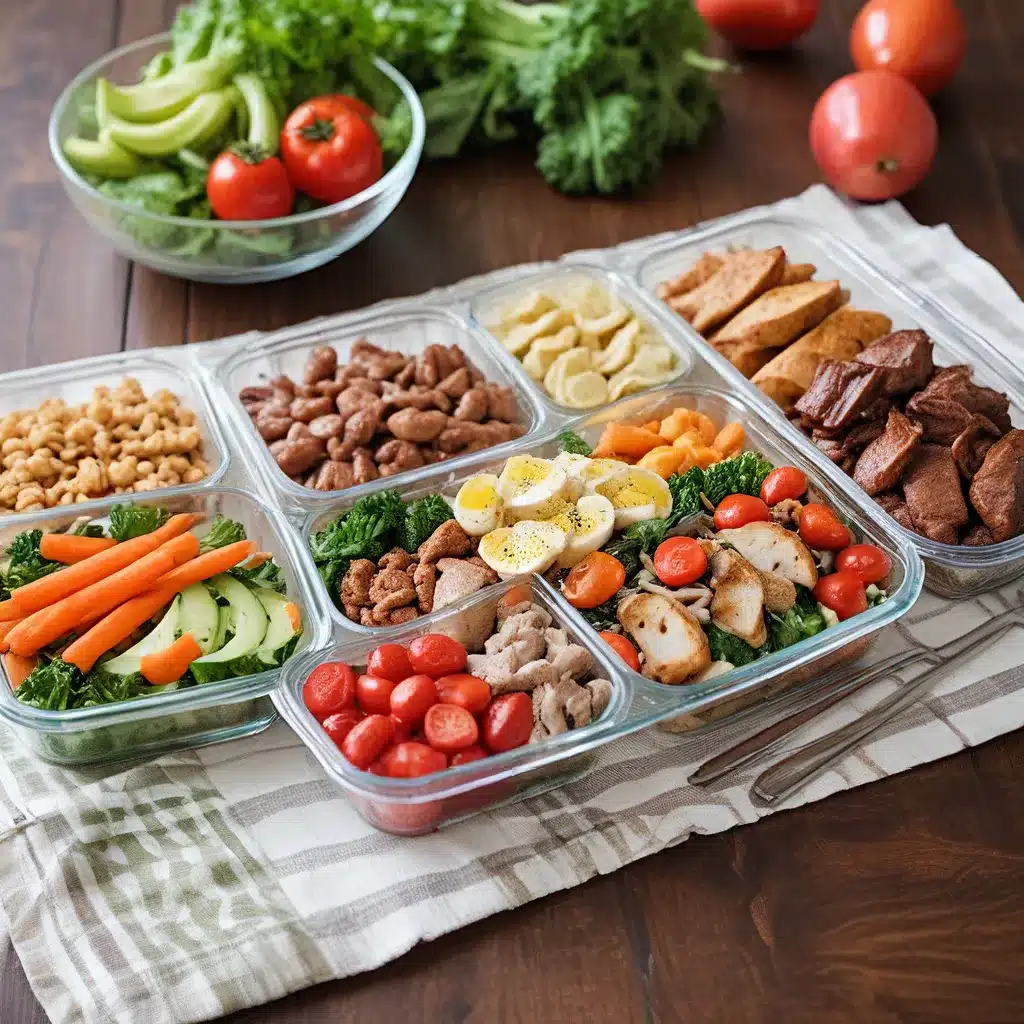
As someone who has struggled with weight fluctuations over the years, I know how challenging it can be to find a sustainable approach to weight loss. It’s easy to get caught up in the latest fad diets or quick-fix solutions, only to find ourselves right back where we started a few months later. However, I’ve learned that the key to successful, long-term weight management lies in meal planning – a strategy that has not only helped me achieve my goals but also maintain a healthier lifestyle overall.
The Importance of Meal Planning for Weight Loss
Meal planning is more than just a way to save time and money; it’s a powerful tool for taking control of your nutrition and calorie intake. When you plan your meals in advance, you’re able to make informed choices about the foods you’re consuming, ensuring that you’re getting the right balance of nutrients to support your weight loss goals. Research has shown that individuals who engage in meal planning tend to have healthier diets, consume fewer calories, and are more likely to maintain their weight loss over time.
But the benefits of meal planning go beyond just the numbers on the scale. When you have a well-thought-out plan for your meals, you’re less likely to make impulsive, unhealthy food choices when hunger strikes. This can help you avoid the dreaded “hangry” moments that can derail even the best-laid diets. Plus, meal planning can save you time and money by reducing the need for last-minute takeout or expensive convenience foods.
Strategies for Effective Meal Planning
Now that we’ve established the importance of meal planning for weight loss, let’s dive into some practical strategies to help you get started:
1. Assess Your Needs and Preferences
Before you start planning your meals, take the time to reflect on your individual needs and preferences. Consider factors like your activity level, dietary restrictions, and personal taste preferences. This will help you create a meal plan that is tailored to your unique goals and lifestyle.
2. Meal Prep and Batch Cooking
One of the most effective ways to stick to your meal plan is to prepare your meals in advance. Set aside some time each week to batch cook healthy meals, portioning them out into individual servings for easy grab-and-go options. This not only saves you time during the week but also helps reduce the temptation to order takeout or snack on unhealthy foods.
3. Incorporate Variety and Balance
While it’s important to have a plan, don’t be afraid to mix things up. Incorporate a variety of nutrient-dense foods, such as lean proteins, whole grains, fruits, and vegetables, to ensure that you’re getting a balanced macronutrient and micronutrient intake. This will not only keep your taste buds engaged but also provide your body with the essential nutrients it needs to support your weight loss journey.
4. Embrace Flexibility and Moderation
Remember, weight loss is a marathon, not a sprint. It’s important to be kind to yourself and allow for some flexibility in your meal plan. Occasionally indulging in a treat or enjoying a meal out with friends won’t derail your progress, as long as you maintain a overall balanced approach**.
5. Monitor and Adjust as Needed
Regularly tracking your progress and adjusting your meal plan as needed is crucial for long-term success. Pay attention to how your body responds to different foods and portion sizes, and be willing to make tweaks and modifications to ensure that your plan continues to support your weight loss goals.
The Power of Personalization
One of the key advantages of meal planning for weight loss is the ability to personalize your approach. Research has shown that individualized meal plans tend to be more effective than one-size-fits-all approaches, as they take into account your unique needs, preferences, and lifestyle factors.
When it comes to weight loss, there’s no universal solution that works for everyone. What might be effective for one person may not be the best fit for another. By tailoring your meal plan to your specific circumstances, you’ll be more likely to stick to it and achieve lasting results.
The Role of Technology
In today’s digital age, there are numerous tools and apps available to simplify the meal planning process. From recipe databases to meal planning apps, these technological solutions can save you time and make it easier to stay on track with your weight loss goals.
For example, using a meal planning service like Saint Marc can take the guesswork out of meal prep, providing you with customized recipes, grocery lists, and step-by-step instructions to make meal planning a breeze.
The Bottom Line
Meal planning is a powerful and sustainable approach to weight loss that can transform your relationship with food. By taking the time to assess your needs, prepare your meals in advance, and personalize your approach, you’ll be well on your way to achieving your health and fitness goals.
Remember, weight loss is a journey, and it’s important to be patient and kind to yourself along the way. With the right strategies and support, you can unlock the power of meal planning and enjoy the benefits of a healthier, happier life**.
So, what are you waiting for? Dive into the world of meal planning and start your path to long-term weight loss success today!

